











Hope After Toxic Relationships
Using Art as a Bridge for Veterans “ GOD GIVES US WHAT WE NEED ”
LAUGHTER: The Heart’s Natural Therapy









Laura
Michael
Robin Richardson Senior Marketing Director
Mandy Wilson Marketing Director
Stephanie Chalk Senior Marketing Manager
Peter Ackerman Senior Operations Manager CONTENT
Laura Neutzling Managing Editor
Abigail Stephens Production Manager
Amy Kerr Copyeditor
Barbara Moser Creative Director Michelle Lenger Designer
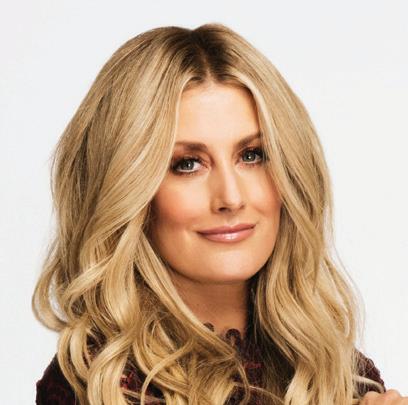






As we take a break from the busy year and enjoy summer vacations, it’s the perfect time to prioritize wellness—mental, physical, and spiritual. Just as the ocean waves gently roll onto the sand, God’s love smoothes the edges of our heartache and leaves peace. Let the summer season be a reminder that true wellness is found in Jesus.

An exclusive excerpt from Sarah Young’s 365-day prayer devotional Jesus

Glorious Savior,
I’m grateful that You are in my midst and You are mighty. Just as the sun is at the center of the solar system, You are at the center of my entire being— physical, emotional, and spiritual. You, the Mighty One who created the universe, live in me! I want to take time to absorb this amazing truth— letting it reverberate in my mind and soak into my innermost being.
I delight in pondering what it means to have so much Power dwelling within me. As I think about Your powerful Presence, I realize I don’t need to worry about my lack of strength. Moreover, I’m comforted to know that Your Power is completed and shows itself most effectively in my weakness.

Jesus, please remind me frequently that You live in me and You are mighty! I ask that my awareness of Your indwelling Presence may drive out discouragement and fi ll me with Joy. I’m so thankful that Your Life fl ows into me continually, strengthening me with Your divine might.
In Your mighty Name, Jesus, Amen
ZEPHANIAH 3:17 NKJV · GALATIANS 2:20 NIV
EPHESIANS 3:20 NIV · 2 CORINTHIANS 12:9 AMP














High-Octane Moments That Drove a Corporate Executive to the Monster Jam Circuit
by Michael Overholt


“WHAT IS IT GOING TO TAKE to have you be the driver of the Great Clips Mohawk Warrior?”
There was a sense of finality in the question. It was 2014, and Bryce Kenny had already told the selection committee to take him off the list three times, but it seemed they couldn't take “no” for an answer.
And for good reason. Why wouldn’t Bryce Kenny want to drive the monster truck?
Kenny grew up in Clay City, Kentucky, where he spent his summers working at his grandfather’s drag strip and began dreaming of a career in motorsports at eight years old. When his grandfather decided to sell that drag strip and put together a top fuel dragster operational team, Kenny saw his grandfather let go of a good dream to pursue a great dream.
It was an example that Kenny would later describe as “shifting gears in life.”
Kenny remembers the first time he watched one of his grandfather’s top fuel dragsters, a car with 10,000 horsepower that could go from 0 to 300 mph in four seconds, literally a rocketship on wheels. It was that rush that cemented the dream for Kenny.
So why wouldn’t he now, with a racing team pushing his name through the selection process, say “yes” without hesitation?
Because perceived failure is hard to overcome.
Kenny continued with his grandfather all the way through 2010, when the world was going through
the Great Recession and it was nearly impossible to convince a corporation to give a racing team millions of dollars just to slap the company’s name on the car. Kenny scrambled to get endorsements, to get the decision makers to open their wallets. It was too much pressure at a time when companies were becoming more and more reluctant to indulge in this kind of advertising.
“Finally, I went to my grandfather and I said, ‘If it’s something that God has for me, then there’s not a timestamp on this dream. And I don’t want you to keep it and have this financial burden in the back of your mind. Either sell the business, and if it takes me forty years to get back into it, so be it.”
So, Kenny left motorsports and began a corporate career.
That decision felt like failure. Or, as Kenny would now describe it, the death of the dream.
For the next several years, Kenny built a successful career placing C-suite executives into private equitybacked companies. He was creating a good life. And then Monster Jam called. The larger-than-life event tour for motorsports took him up to Monster Jam University—“It’s a real place,” Kenny says—where he earned a diploma and found himself in the running to be the driver of the Great Clips Monster Truck team.
In reality, he was facing the same dilemma his grandfather had encountered years before: would he continue doing something good, or would he reach for great?




Kenny remembers how he made this decision. He found himself in his garage, simply looking around at all the stuff there. Behind the kids’ bikes and the usual garage paraphernalia, he saw pictures of racing. He saw his grandfather and the remnants of a dream that had been born at a young age and then died.
“
If it’s something that God has for me, then there’s not a timestamp on this dream.
But then he noticed that something was missing. There was not one picture of a CEO or CFO or COO he had placed in a corporate job. And Kenny’s decision suddenly became much easier to make.
“I’m in.”
The driver remembers his conversation with God as he took this leap of faith: “I don't know what’s on the other side of this jump. I don’t know where I’m going to land here. But I do know, God, that You placed a calling on my life, and the circumstances of my life do not change the calling of my life.”
Kenny’s life was in parallel with his childhood hero. His grandfather had let go of doing something good, like owning a drag strip, to doing something great, like owning a top fuel dragster team. Kenny let go of a good life as a corporate headhunter to pursue what, for him, would be a great life as a monster truck driver.
Since watching his childhood dream wither then be reborn, Kenny has gone on to inspire thousands of people. In his perspective, he sees that every dream goes through a birth, death, and a resurrection. The problem, as he sees it, is that too many people get stuck in the death phase of a dream. Learning how to navigate that stage through all of its diffi culties until the time when the dream is ready to be reborn—that is the diffi cult part.
What Kenny helps people realize is that they too can have their dreams resurrected. The key?
“My belief is that something good is going to happen today. No matter how bad it is, I know that God is going to take my situations, even the dire situations, and bring something amazing out of it.”

Adapted for print from the Jesus Calling Podcast Scan this code to hear more of Bryce’s story!

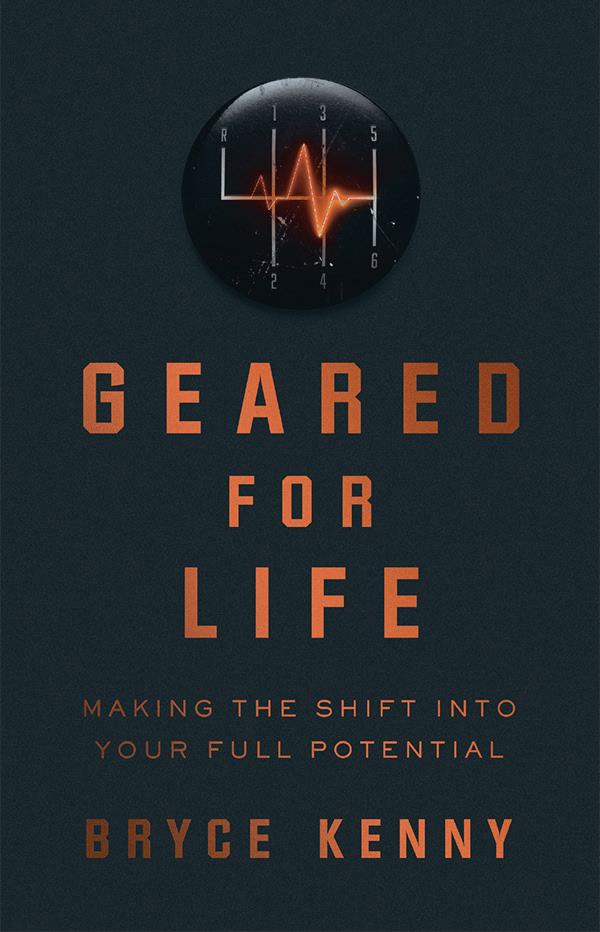
Check out Bryce’s new book Geared for Life at your favorite book retailer.


FROM HIS EARLIEST DAYS Andy Partington, the International Director of Novo Communities, has seen that recovery from addiction, as hard as it can be, is possible.
Originally from the UK, Andy had what many would say (including himself!) was an unorthodox childhood. “I grew up at a place called Yeldall Manor, a residential drug and alcohol rehab in the southeast of England. My parents began work there when I was three years of age, and in those days the staff moved onsite with their families to create a sense of community for the guys in the program. So I spent my childhood in that environment, eating my evening meals with the guys in the program, and on the school holidays.”


Andy will tell you it was a great privilege growing up in this environment. “I was surrounded by men who were emerging from serious long-term substance addictions. I got to enjoy their company and see their intelligence, their heart, their love, their vulnerability. I could begin to understand the stories that led them into addiction in the fi rst place.”
What struck him most during his time at Yeldall was that he saw that recovery happens best in community—especially when the foundation of the community is in faith.

by Scott Mason

His time working in the recovery community has shown Andy that addiction can be more than substance-focused; it can also be behavior-driven. “Behaviors work on the brain in the same way as substances. So gambling, porn, gaming, shopping: lots of things can take on this role in our lives, where we fi nd ourselves unable to make the choice not to do the thing. So really, addiction is this experience of losing the power to choose, and recovery is discovering again our power to choose.”
Andy’s found many other misconceptions about addiction, including misguided notions about those who are actively battling addiction on their road to recovery. “I was working at Yale in my early months there, as I helped one of our residents to leave the program. He was leaving prematurely. He was clear that he was leaving to go and use again. As we drove down the driveway, I said to him, ‘You know, the pleasure is not going to last long. You’ll soon regret this decision.’ And he shot straight back at me and said, ‘Andy, it hasn’t been pleasurable for years.’





“I was taken aback and humbled, really. He was communicating that when we’re in addiction, it’s not about pleasure—it’s about the avoidance of pain.
“There’s a Scottish proverb, which I love and is so helpful to us: ‘They speak of my drinking, but never my thirst.’ And as we look at the times we live in and the prevalence of addiction, it’s really important for us to ask, Why are we so thirsty? What is it about modern life that creates such a powerful seedbed for addiction?”




As Andy sees it, the bottom line is we are hungry for connection. Because we were never made to be as alone as we are today.
As individuals, as churches, there are things we can do to help our fellow humans in recovery. We can support recovery groups and 12-step programs, but we should also simply be gracious, kind, and welcoming to others, no matter their struggles. Because an invitation to connect is an invitation to touch the divine.
“


When we’re in addiction, it’s not about pleasure— it’s about the avoidance of pain.
“We know that a relationship with God the Father, the Son, and the Holy Spirit is absolutely transformative for our experience of life, as well as our eternal hope,” Andy says. “Whether you’re in addiction or you’re leaving addiction, God wants to hear from you. He wants to speak to you. He wants to enjoy spending time with you.”






Adapted for print from the Jesus Calling Podcast. Scan this code to hear more of Andy’s story!














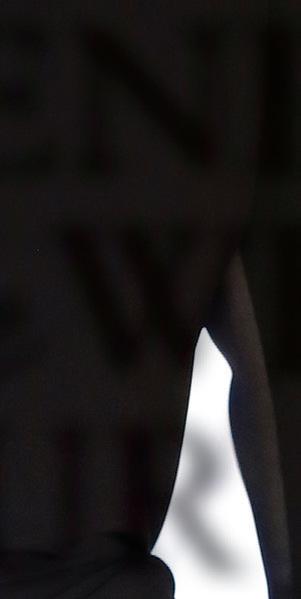
Julie Chen Moonves on Nurturing the Spiritual in Everyday Life



by Laura Neutzling







In the bustling world of media and entertainment, Julie Chen Moonves stands out as a woman whose career trajectory exemplifi es resilience, transformation, and an unwavering belief in the power of faith.




of her career. “My path, as everyone’s path, has some detours and twists and turns that I didn’t expect. I spent the fi rst forty-eight years of my life ignoring God and having false idols. My career was my false idol. That was the thing I put in front of everything else.”
Moonves describes her spiritual awakening as a gradual yet profound realization, one that slowly simmered in the background as she navigated the complexities of life, career, and motherhood. “Now I know there is no such thing as luck,” she refl ects. “There is no such thing as coincidence. God is in control. God either ordains it, or He allows it. But I would be like, Oh, I got so lucky to land that job, or, I worked so hard, I earned it. I got what I deserved. And I was always patting myself on the back. I was just very, very self-involved. There was no room for God in that picture.”

It wasn’t until Moonves encountered a series of personal milestones and challenges that she started


Best known for her magnetic presence as the host of CBS’s reality show Big Brother, Moonves’s path to television stardom was anything but direct. She started her career with ambitions of becoming a news anchor, a dream that blossomed during her childhood in Queens, New York, where she was the youngest of three daughters to immigrant parents. In the realm of broadcast journalism, Moonves’ early years were marked by a dedication to her craft and an ambition fueled by personal drive rather than an abiding faith. “I was such an egomaniac,” she recalls.
“
God either ordains it, or He allows it.


Refl ecting on her ascent to the national spotlight as a morning anchor for CBS News, Moonves says it was her exposure at the morning news desk that serendipitously led to her role on Big Brother. It was a turning point that would defi ne the next chapters











to take a deeper look into herself and what she believed. Marriage and the birth of her son prompted a reevaluation of her priorities and work-life balance, leading to her departure from morning news for The Talk, a panel talk show cast entirely with mothers. This shift marked the beginning of Moonves’s slow, deliberate pivot inward, towards spirituality and faith—a facet of her life that had remained dormant for decades. Julie reiterates that luck and hard work weren’t the catalysts that kept her on her current career trajectory. “Now, I know I’ve had the career and continued to work in this fi eld because of God, and I have to thank Him for it. I have to give Him the glory.”
This acknowledgment of God’s presence in her life, she notes, has not only reshaped her professional outlook, but has also enriched her relationships with family, particularly with her son and husband, underscoring the power that shared faith has in fostering deeper connections and understanding.



“I realize now—and I knew this then—I was running on fumes. I was always exhausted. And I wouldn't say that I was unhappy, I was just tired. And I felt accomplished because of all these goals, career-wise and family-wise. But I didn’t have the peace that I now have. And why would I have had peace in my life back then? If you know Jesus, you know peace. If you have no Jesus, you have no peace. I just wasn’t smart enough back then to realize that.”
Moonves’s shift toward spirituality and faith marked a pivotal moment in her life, igniting a curiosity about the universe’s mysteries and her place within it. This spiritual exploration led her to encounter some new ways to express her faith, from meditation and prayer to communal worship, each adding a layer of depth to her understanding of the divine.
“I started crawling toward God, and then I got more comfortable with the power of prayer in my head and with my words. Journaling my prayers and






peace and inner strength, but also became a source of inspiration in her creative endeavors, infl uencing her approach to storytelling and characters. Moonves discovered the beauty of interweaving one’s personal growth with professional pursuits, fi nding that shedding light on spiritual themes in her projects resonated with audiences on a global scale.
“
“God created each and every one of us in His own image, but He’s a gracious God and gives us free will. So now that I know what I know, who am I going to choose to be when I show up in the world, when I wake up and get out of bed in the morning? I know we have it in all of us to be a refl ection of Him, because that’s how He created us. And behavior is contagious. If I can show up in the world and try to say and do what Jesus would do, that’s going to have a ripple eff ect. It’s like taking the high road. It’s taking the only road—the ultimate road.”



Adapted for print from the Jesus Calling Podcast. Scan this code to hear more of Julie’s story!

writing in a diary, just going through the physical action of writing, has deepened my walk with God and my understanding of who He is and why He created me. Jesus Calling came on my radar through a lovely man named Gus, who is an elder at our local church. Now I can't live without it. If I wake up and don't read it fi rst thing in the morning, I always feel a little bit like I'm walking sideways. I try and do a challenge where I'm like, What did we read this morning, and did I apply it? I love it.”
This practice not only off ered Julie a sense of





Julie’s audio memoir But First, God is available now.












August 26







WHETHER YOU PASS ONE ON THE SIDEWALK , see another poke its head out of a car window, or feel one quietly sitting at your feet, dogs have the power to both lift and calm our spirits. It’s something Larry Randolph knows very well.
Larry once went through an incredibly diffi cult season: he lost his real estate business, experienced the pains of divorce, and slipped into fi nancial bankruptcy. In the middle of his struggle, Larry’s daughters brought home a small, fl oppyeared basset hound named Gus.
by John Furr
And this goofy, slobbery puppy brought Larry and his family joy and love exactly when they needed it most. “I would walk in from a day of searching for another job, and this little dog, best as he could, would put his paws on me, look at me with those soulful eyes, and just lick my face. He just gave me so much unconditional love and joy and peace. He made things right in a way that only God could do through a dog at that time.”
The divine joy and comfort that Gus brought to Larry inspired Larry to launch a brand-new

ministry using therapy dogs to comfort others, which became Canines for Christ.

Canines for Christ trains and certifi es therapy dogs through the American Kennel Club. The ministry ensures each pup receives the Canine Good Citizens certifi cation, which says each therapy dog is well-trained, friendly, and can be petted safely by anyone. Once they get certifi ed, each dog has a special mission: to reach people with God’s love. “We use the dog as a vessel to meet and greet people. And the volunteers can open up a



conversation with someone, break the ice, and share a message of hope to say, ‘God bless you today, and God loves you today.’” Larry noticed that the impact of therapy dogs is especially noticeable in environments like nursing homes, hospitals, rehabilitation centers, and hospice units, where people may be experiencing acute pain or loneliness. Introducing a dog into these settings can signifi cantly alter the atmosphere. People become drawn to the dog, asking about its name or reminiscing about their own pets. This shift in focus can have a drastic eff ect on people's attitudes and overall mood.
And there’s a scientifi c reason why. Researchers from Washington State University found that spending just ten minutes petting a dog can cause a substantial decrease in cortisol, a key stress hormone. The dogs themselves contribute to this change by off ering simple gestures like placing a paw on someone's hand or wheelchair, giving gentle kisses, wagging their tails, and providing companionship. It’s a connection Larry’s noticed with some of his special therapy dogs, including a white eighty-fi ve-pound labrador retriever named Gracie.
“Gracie went everywhere. People would come up to her, and
her demeanor was like, ‘You come to me, and I’m going to be here for you.’ Dogs have emotions, and they can sense things about people. She could sense pain and crying and loneliness and death, and it was amazing to see her react to people feeling this way.”
Looking back, it’s become clear to Larry that God can work through anything and anyone. “I didn’t think that when I started this ministry sixteen years ago that it would be as huge as it is now. There was no way I thought that, but God did. He knew everything that was happening.”
For more information on Canines for Christ, visit k9forchrist.org

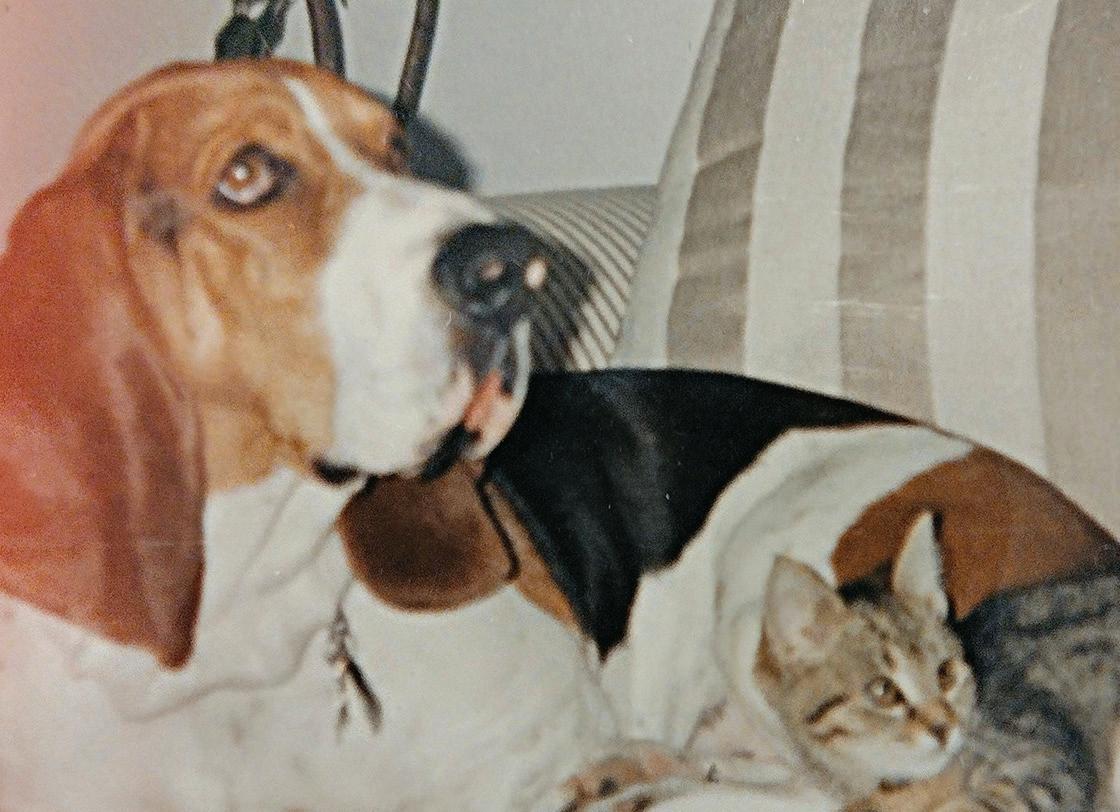









Adapted for print from the Jesus Calling Podcast. Scan this code to hear more of Larry’s story!




















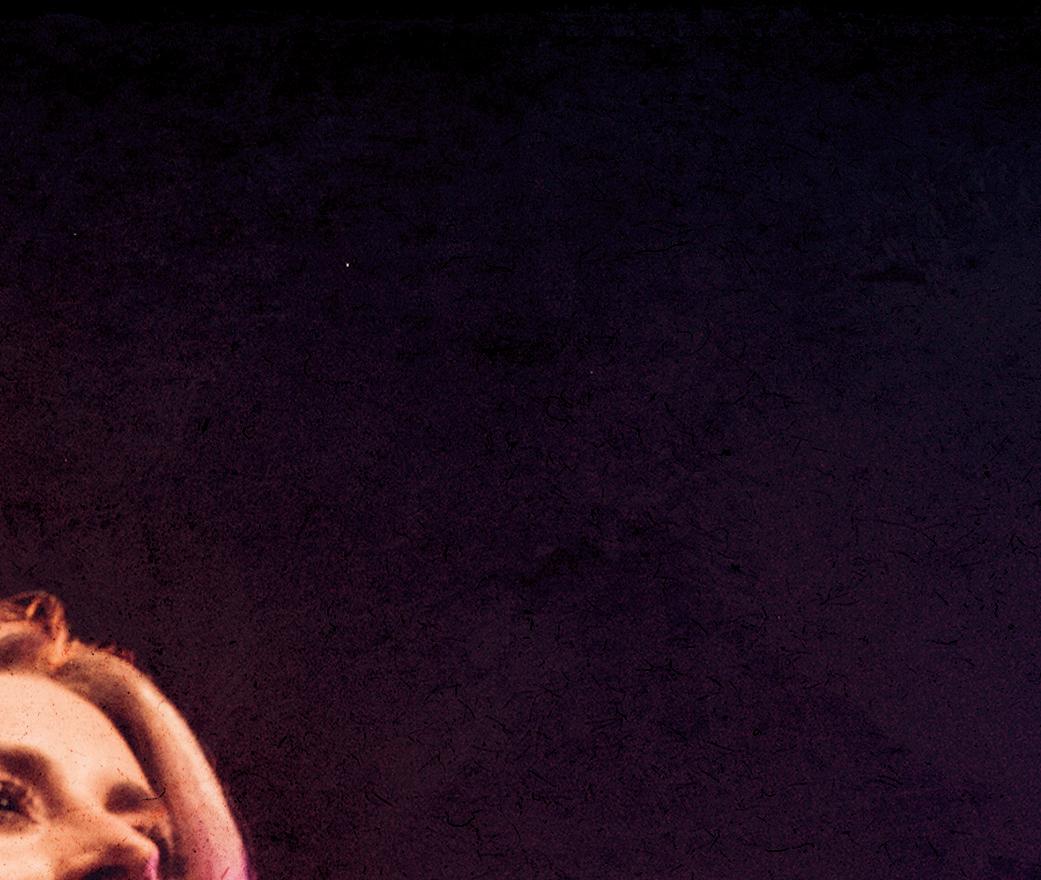








Country Music Artist Stephanie Quayle on Forgiving Others—and Forgiving Ourselves
by Cynthia Stuckey



STEPHANIE QUAYLE, A BELOVED NASHVILLE COUNTRY MUSIC ARTIST
and recent fi rst-time author, has long explored themes of redemption and forgiveness in her music. She just never knew how impactful those themes would be for her life, too.
Raised in Montana, Stephanie’s faith is a cornerstone of her identity and infl uences her career and personal life. Throughout her discography, fans will fi nd love, loss, and resilience woven into the lyrics. The artist’s songs often touch upon the complexities of human relationships and the journey toward forgiveness and redemption.



airplane crash. But as the artist mourned his loss, another heart-wrenching discovery was just around the corner: Stephanie wasn’t the only woman in her boyfriend’s life.


More recently, listeners will notice that Stephanie’s lyrics have embodied a deep-rooted faith as she has begun to reveal the emotional terrain of the healing journey she has been on. Stephanie adores the ability to unfold her story this way. “That’s what I love about country music,” she says. “It’s storytelling, and it’s a simple version when it comes to complex conversations.”
The months that followed were marked by shame. Stephanie felt herself reeling from the betrayal and deceit that kept unraveling, as she realized how broken the relationship truly was, leaving her emotionally battered and bruised. Before she had fully healed, she found herself searching for comfort in what turned out to be another harmful relationship. “I fell into this other toxic relationship, further from God. And that’s where it gets really dangerous, because nothing was healed. There was no cleanup on Aisle Quayle. At that moment, I was done. It wasn’t that I wanted to die, I just didn’t want to hurt anymore.”
And that’s when Stephanie called it quits on the second harmful relationship. In the days that followed she remembers growing still in her spirit, hoping she would begin to see God’s direction for her life. “I started journaling. I started getting quiet, and I started meditating and praying, which led to me asking where my Bible was. You know, it was a very sobering moment to fi nd my Bible and have to dust it off . But I did it.” As she began to dig into Scripture, Stephanie remembers the hope that began to return and the joy that God could still make beautiful things in her life. “God is the greatest conductor. He can make the most wonderful music, even with all the choices I've made, the majority of them being very wrong.”
“

Country music is no stranger to a song that can tell a complicated story. And Quayle would tell you that hers would defi nitely qualify under the “complicated” umbrella.
In the early days of 2009, Stephanie’s boyfriend, a man she was deeply in love with, died in an

[God] can make the most beautiful music, even with all the choices I've made.
In the next few years, Stephanie emerged with a newfound boldness for talking about her faith, and she felt inspired to share her journey with others. But she realized she hadn’t forgiven her betrayer, that she was still struggling with resentment and self-blame that simmered under the surface, and that perhaps her unforgiveness was holding her back. Perhaps there was freedom and healing available to her, if









she were able to let go of the bitterness caused by her betrayer. “Fortunately, we are given Jesus and forgiveness,” she says, “but we’re also given the picture of a garden. As a gardener you don’t just get to lay in the garden and bask in the sun, and know it's all going to be okay. You have to plant the seeds, you have to sow the seeds, you have to water. You get to do the hard work.”
Forgiving herself—for her naivete, for abandoning herself—wasn’t easy. But Stephanie stayed committed to healing her relationship with herself, knowing the power of forgiveness was worth the eff ort, no matter who it’s for. “When you think about God’s love, how God gave His Son for us, it’s amazing to think we have an unconditional, loving God. It’s hard to fathom a love like that. But fi nding and feeling that love is part of what happens as we grow in our faith and our forgiveness for ourselves, too.”
Every stroke of Stephanie’s pen, whether she’s writing a song or her story, brims with the truth of healing, of second chances. And for whoever receives her story, Stephanie says the goal is freedom. It’s a freedom the artist has tasted and wants to share with others as they’re unshackled from the chains of resentment and embrace a future infused with healing and hope.


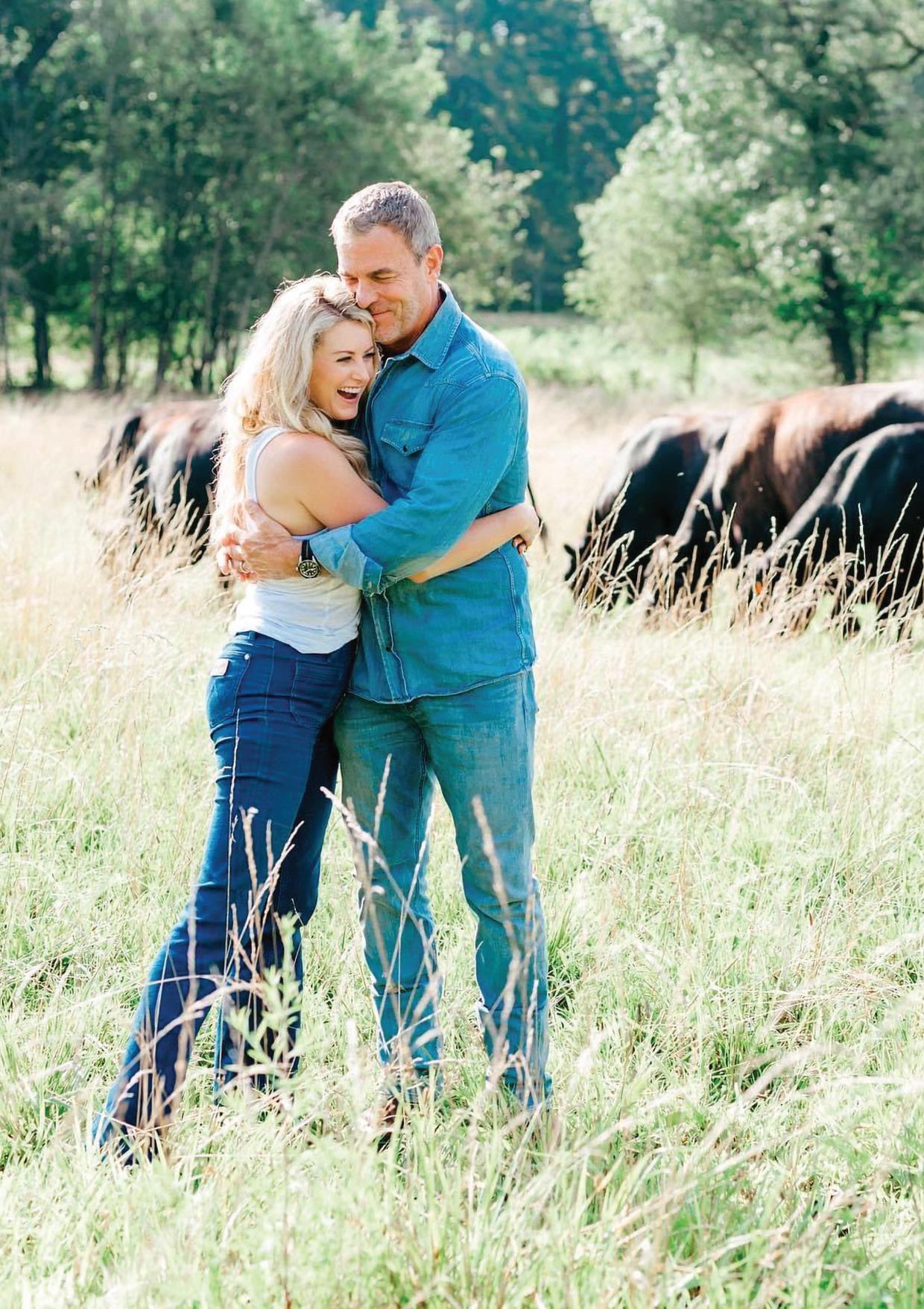


Adapted for print from the Jesus Calling Podcast. Scan this code to hear more of Stephanie’s story!



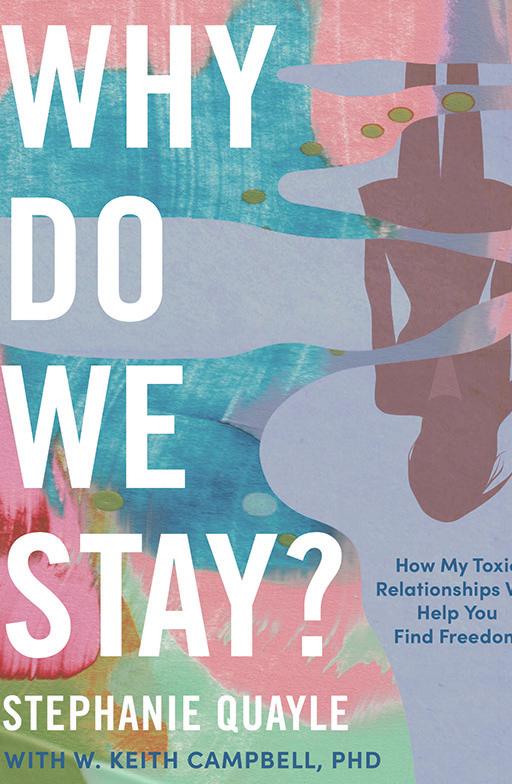




by Jesse Bradley Grace Community Church Seattle, Washington
Be strong and courageous. Do not be afraid; do not be discouraged, for the Lord your God will be with you wherever you go. —JOSHUA 1:9 NIV
A lot of times in life, there are two stories: what people see on the outside, and then another story which I call “the inside story.” On the outside, people see you through social media, or they get glimpses of who you are. But the inside story is the real story, the full story.
As a former professional soccer player, pain has been a big part of my inside story, of my transformation. C.S. Lewis once said, “Pain is a megaphone to rouse a deaf
world,” and I believe that pain can lead to a new passion, a new depth. God changed me and transformed me in deep ways.
During my soccer career, I was playing in Africa, and I was taking medication to prevent malaria. But the medication built up toxic levels in my system, and my health rapidly deteriorated. I had no more control over my heartbeat, I couldn’t control my body temperature, I had double vision. And then emotionally, the drug had side eff ects like waves of depression and panic attacks. It was taking over my body.
“
I learned gritty gratitude.
So I made a bold decision by faith that I wouldn’t take the medication, and that saved my life. But it ended
my soccer career and took me ten years to fully recover.
In the recovery, some transformations happened for me. First of all, I never thought I’d be a pastor. When professional soccer was over, He started to redirect me into new paths.
I learned “gritty gratitude,” how to give thanks to God when you don’t feel like it. Because at that low point in my life, I was writing down ten things every day that I wanted to thank God for. That’s a habit that continues today. And I know in Jesus Calling, there's such an emphasis on closeness with God, and I appreciate that because nothing's more important than being close to Jesus, listening to Jesus, trusting Jesus. And we need that daily.
Through it all, I found that God is actually close to me in my weakness. He’s there when I feel all alone, when my life is messy, when I don’t have a direction for the future. God is still there and loves me just as much in those situations.

Adapted for print from the Jesus Calling Podcast Scan this code to hear more of Jesse’s story!

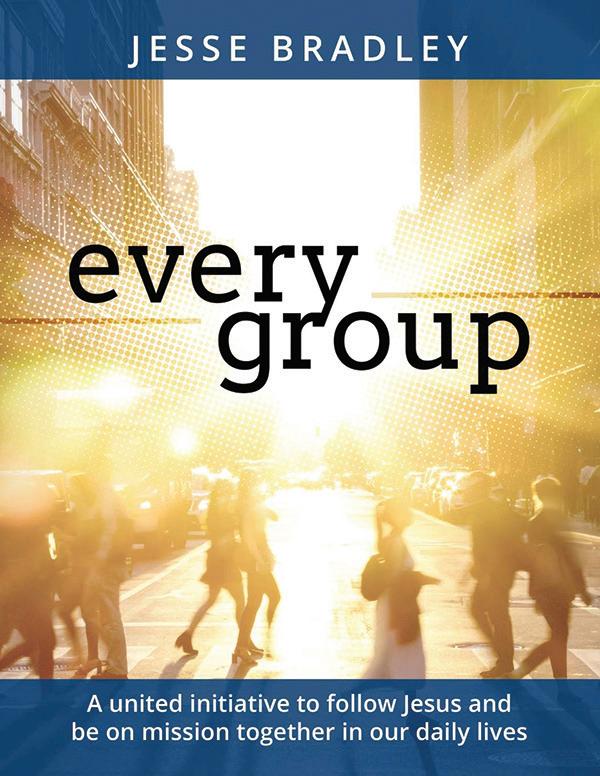






Olympian Sydney McLaughlin-Levrone on Reaching the Top— and finding out “What’s Next?”






by Michael Overholt
“DID LAST NIGHT REALLY HAPPEN, OR WAS IT A DREAM?”
That’s the question Sydney McLaughlin-Levrone asked her parents in 2021 after breaking the world record in the 400 meter hurdles with a time of 50.68 seconds. She could say that no one in the entire world had run faster on record.
But now what?









It’s a question every champion faces, and with it comes fear. To say that everyone deals with fear isn’t helpful, because the overly simple notion negates the experience. Disqualifi es it, in a sense. As if because everyone feels fear, it shouldn't be such a big deal.
For athletes, the pressure to always be winning can be crushing. There are expectations to constantly meet, fulfi ll, or surpass. Becoming fi xated on what others think can destroy a career.
And to keep telling yourself that fear is “just in your head” is rarely ever enough to eff ectively deal with it.

Performance mindset coach Kristen Ulmer notes that “From working with thousands of athletes, I found that 99 percent of us have repressed fear in order to perform the way we want to.” Sure, this is a form of “anecdata” as opposed to hard science, but the point remains: athletes face a particular intensity of fear, and McLaughlin-Levrone is no exception.
Fear of failure can destroy an athlete’s career. McLaughlin-Levrone remembers competing for the very fi rst time at the age of six. Her dad had consistently taken her and her siblings out to the track to run, showing them the proper ways to run— proper form, proper stances. But he had emphasized that running was supposed to be fun and social. The love of running was instilled in McLaughlin-Levrone from the very beginning.


Now, in 2024, she’s in the process of qualifying for the 2024 Summer Olympics.
It’s easy for sport enthusiasts to reduce athletic greatness to the number of championships won, the trophies on display, or the gold medals collected. But as someone who has won at every level, battled back from injury, and learned to overcome fear, McLaughlin-Levrone has realized where the real victory lies.
“I think now I can show up to the track every day and understand that this is a gift He’s given me—that win, lose, or draw, it’s an opportunity to glorify God. My value is already secure in Christ, so there’s no fear of not being enough. Everything that I need is found in Him.”

But that didn’t keep the young athlete from feeling terrifi ed. Even though she won races handily, she recognized that she felt extreme anxiety at the beginning of every race, no matter how successful she became. This fear would only increase with her success as she discovered “the diff erence between fi rst and second place is how well you’re taking care of the details.”
“
Win, lose, or draw, it’s an opportunity to glorify.

Every millisecond counts as a world-class athlete. That leaves a lot to worry about, to be anxious about, to fear. As soon as the runner accomplishes something great, the next hurdle lies ahead: the question of, “Okay, what now?” It’s an endless cycle, and the exact question she was facing after breaking the world record in 2021.
Injury was one of the things that came next. In 2023, McLaughlin-Levrone was kept out of the world championships because of a knee injury, and she was faced with the question of whether this was a gift or the end of the world.

Because McLaughlin-Levrone had spent her life learning how to deal with fear, she found the beauty of what this injury provided. Sure, she would’ve loved to attend the 2023 World Championships, but she found the strength to focus on her overall health, her nutrition, and her recovery.



The 2024 games will be held from July 26 to August 11 in Paris, France. Follow the world's top athletes as they go for gold!
LEARN MORE AT OLYMPICS.COM



Adapted for print from the Jesus Calling Podcast. Scan this code to hear more of Sydney’s story!






In times of hardship, when laughter emerges, it reminds us that tough times don’t last forever. Laughter isn’t just a temporary escape from reality, but a tool that releases our body's natural feel-good chemicals, promoting an overall sense of well-being. Here are a few funny people we love, sharing why they enjoy encouraging a lighter perspective. They prove that even in the darkest times, a chuckle can make everything look a little bit brighter.
Anita Renfroe was a church pianist-turned-comedian who grew up in a church that didn’t consider laughter to be appropriate within its walls. Anita always had something funny running through her head, and it took her years to realize that joy, which bubbles over into laughter, is actually something that pleases the heart of God.
“Part of my early path to comedy was that I grew up in a very legalistic household of faith. The whole idea was ‘You shouldn’t be laughing, because if you’re laughing it means you’re probably having fun. If you’re having fun, you’re possibly enjoying yourself, which could be a sin. So let’s not even go there.’ It wasn't that we didn’t appreciate laughter, it was just very home-based. Like, we can laugh, but definitely never in church. I just never knew it could please the heart of God if His children laughed until I had a child of my own.”





“Emotion and chocolate are a lot alike: Too much and you can get downright sick, too little and the world might as well end!”
Ch da Pierce


“If you’re happy and you know it, you’re probably someone who Anita Renfroe








someoneannoyingprobably isn’t.”who

Chonda Pierce has brought her comedy to stage, film, and even the Grand Ole Opry. She’s found that even through the worst tragedies, she can always find something to smile about.












“The times you feel like laughing the least are probably the times you need to laugh
the most.”





Nazareth is a Christian comedian who was born in Nazareth (yes, that Nazareth, not the one in Pennsylvania), raised in Kuwait, and moved to the US in his teens. A love for comedy took him to LA, where he learned the ropes of making people laugh, but he also fell into addiction. Now in recovery, Nazareth wants to bring laughter to places where people are hurting and need it most.
“I started going to places where I knew it’d be a tough audience. Prison—that’s tough. How about an audience of IRS agents? Or a homeless shelter? I go to these places because that’s where laughter is needed—where people may be hurting. Often, life is so hard they don’t have time or can’t afford to go to a comedy club. So I came to them. To see families laughing together and then being able to tell them about the Gospel—to me, this is the ultimate joy.”

“Shoutout to all the parents who registered their kids for every VBS in their city, so someone else could feed them snacks for an hour and a half.”
Anna Lind omas
Molly Stillman is a writer speaker, and podcaster who relied on humor to tackle tough times (and also aspired to be a cast member on Saturday Night Live). Though she didn’t become a full-time comedian, she still loves to talk about and write funny stories, and thinks laughter is God’s gift to us.
Anna Linda Thomas is a writer who found early on that humor was a gift that could propel her out of darker thoughts and bring joy to others. As she leaned into seeing the funny side of life and turning that skill into a career, she also learned to love exactly who God created her to be.









“People who say God doesn’t have a sense of humor clearly don’t read the same Bible I do, or have the same relationship with God that I do. There’s research that shows children laugh up to 300 times a day, while the average adult laughs seventeen times. Proverbs 17:22 says, ‘Laughter does the heart good, like medicine.’ It’s biblical!”

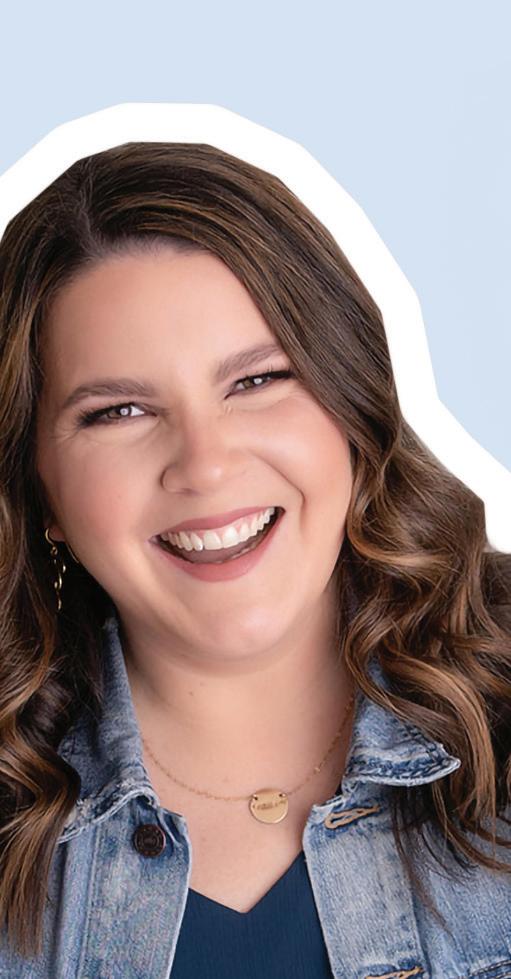


“There’s real science behind what laughter does to the body. Doctors are prescribing funny movies for patients who have just been diagnosed with serious illnesses like cancer, because there are true healing effects that laughter has on us. There’s something about a deep belly-laugh that makes us realize, I can do this, I can handle this, let’s go for it. There’s true power in that.”








by Dr. Amy Kenny
Dr. Amy Kenny is a disabled scholar and lecturer in Shakespearean studies at the University of CaliforniaRiverside. She celebrates the beautiful vulnerability of her disabled body within the theology of the image of God, and she advocates for disabled and unhoused people. She shares her story, as well as thoughts from her book My Body Is Not a Prayer Request, in hopes that people of faith will be inspired to welcome disabled people, just as they are, into their congregations and cultivate spaces where people with disabilities can fully belong and flourish.



I only ever remember disability being confl ated with sin or defect or tragedy when it was preached upon. I never remember a story celebrating the redeeming wounds of the resurrected Christ, or talking about how disability is a way to encounter the living God. And I think most people are wellintentioned, and they’re just trying to be faithful. But they don’t realize the negative impact this messaging has when received over and over: that your body is somehow extra sinful or extra tragic. It just doesn’t make sense with the Truth that “all of us are made in the image of God.”

AS A DISABLED KID, I WAS OFTEN TOLD that if I believed enough or had enough faith, I would not be disabled. Folks would try to promise away or insist that it wasn’t God’s will for me to be disabled. Never mind that Jacob, Jesus, and Paul are disabled in Scripture: there was no real room for disability in this theology. And when curing prayers didn’t yield the results that people were looking for, when I was still disabled, folks would often blame God or blame me.
“What sin is preventing you from getting up and walking?” I would be asked. Or, “If you just believed you would be cured.”


We’re told in Romans that the invisible qualities of God’s divine nature can be clearly seen in creation. So I started to look. I remember being told so repeatedly as a kid that my body was crooked, defective, and disabled that I started to look at nature to see where I could witness those invisible qualities of divine nature. And when I did, I noticed that nature is crooked. And then I started to notice the same thing in animals that I started to understand in connection to my own disabled body.
The kangaroo can’t walk backwards, or really walk at all. Kangaroos kind of hop and bounce. And that’s similar to my cane-assisted gait. Lions sleep most of the day, and no one shames them. They’re fast and fi erce, and we want to be like them. And no one belittles the penguin because it cannot fl y. I can




“ God’s divine nature can be seen in the crookedness of trees.

see the waddle of the penguin in a really similar way to how I waddle. And we know that penguins do that to conserve their energy.
And so I started to realize that if the invisible qualities of God’s divine nature can be clearly seen in that crookedness of trees, in the bouncing kangaroo, in the languishing lion and the waddling penguin, then why can’t I see it in myself, in my own disabled body?
I think there is so much ignorance around disability, but there’s also so much fear. There’s fear that people will say or do the wrong thing. Fear that people will become like me and end up disabled. There’s fear that you’re not in control of your own body or your own life, and that scares a lot of people. But we know that love casts out fear. So what if we loved our disabled neighbors enough that we were willing to cast out all of those fears about getting it wrong when it comes to disability? And instead we could co-create a community that loved one another enough to change?

I would invite us to move beyond thinking about disability as something that needs to be cured or fi xed, and start to witness the ways God is already at work in the lives of disabled people. Let’s tell the stories in Scripture where disability is often understood as a blessing or a prophetic witness, just as it can be in our lives today.


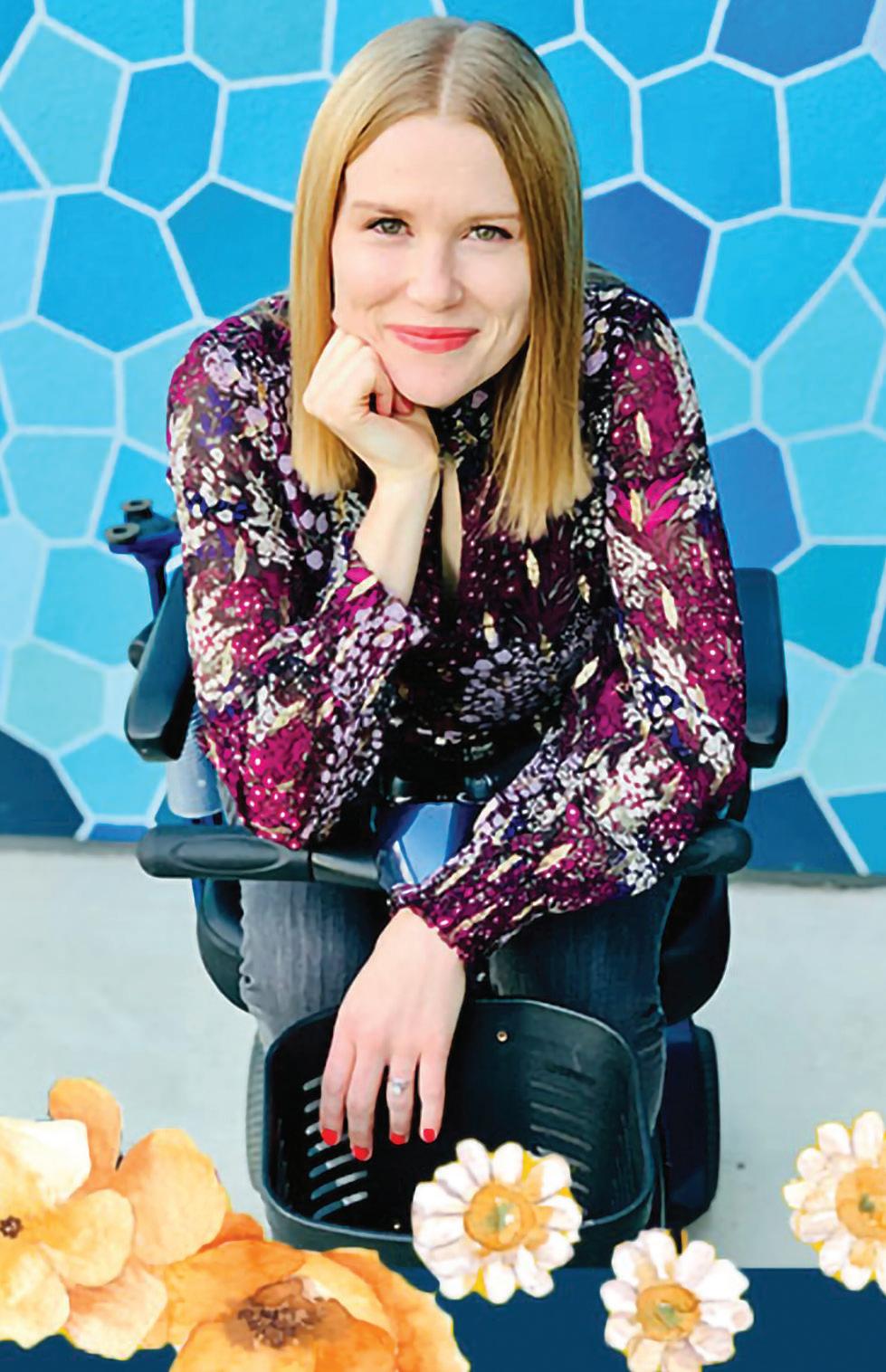










Whether commuting together, sitting at the dinner table, or getting ready for bedtime, The Daily Family Conversation Starter invites you to share, discover, and laugh together as you create family memories that last a lifetime.



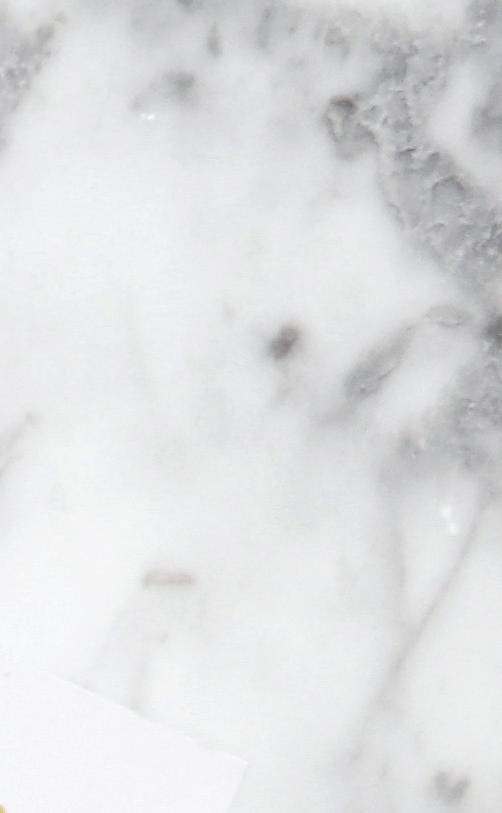


















by Cynthia M. Stuckey

JEANINE AMAPOLA has been creating content online since the age of seventeen. A digital native, her goal is to help women become healthy and happy in all areas of their lives as they grow in confidence through their faith. And the best place she’s seen women, including herself, grow has been through friendship and community.
Jeanine’s drive to inspire women comes from her own struggle to find purpose. “I didn’t know who I was. I found myself floating and looking for affirmation in all the wrong places. I had such a severe disdain for myself and a low self-worth; I went to all these other places to try and find my confidence, worth, and value.”
A season of floundering grew into one short-sighted decision after another, each leaving her empty. Jeanine admits that she was rapidly creating a life piled high with regret, while externally
she maintained the fl awless facade of happiness.
Feeling desperate one day, she accepted an invitation to a Bible study, which grew into a vital time of connection and spiritual growth. “We were reading the Bible and breaking down Scripture, and things I’d heard my whole life suddenly made so much sense to me.”
“
When you have someone who links arms with you, it is the most game-changing thing.
As time went by and the friendships grew, what came next was equally powerful, though painful: Jeanine was called out on her lingering double-life and prompted to make a choice. “That day marked my life. I never had someone so lovingly, but powerfully and boldly call me out in truth. And from that day forward, I decided to make a change.”
From there, Jeanine began to set aside time to read the Bible by herself and sought faith mentors who could pour into her. In no time Jeanine began to thrive and attributes the change to the power of community. “When you have someone who links arms with you, it is the most game-changing thing. Because you don’t always have strength. Sometimes you don’t have the courage to pick up your face. You don’t always have the strength to open your Bible, to fi ght on your own behalf. That is where community comes in.”
For many, life-giving friendships may feel impossible to attain. For those still searching for a core group of people to lift them up and grow alongside them, Jeanine off ers a few markers of healthy people to look for. The fi rst is honesty, where friends know you’re capable of something higher and are willing to speak into your life with kindness and truth. Second, consistency—look for people who make time for one another and prioritize their time when they are able (and be this friend yourself!). The third marker of healthy friendships is mutual accountability, making sure you can push each other to be the best version of yourselves. And the fourth is vulnerability, giving each member of the friendship the grace to be themselves.

“
A true friend is the person who sits with you in the nonInstagram-worthy moments.
In all, Jeanine shows that true healthy friendships are rooted in desiring to uplift the other and experience the highs and lows of everyday life. “A true friend is the person who sits with you in the non-Instagramworthy moments, where you’re not taking pictures and it’s not all fi ltered and pretty and perfect. True friendship is the person who does daily life with you.”

for print from the Jesus Calling Podcast. Scan this code to hear more of Jeanine’s story!


Jeanine’s book Becoming Happy& Healthy is available now.


Set aside time for a quiet moment. Grab a paper and pencil, or open your Notes app and write your answers to these questions.


1. Do you struggle to be vulnerable in your friendships? If so, are there particular areas that you find difficult to share with others? Why do you think that might be?

2. What is one way you would like to be a more present friend in the coming months? How can you ask for support in this growth opportunity?


Do you have as many friends as you’d like in this stage of life? If not, per your phone’s contacts you haven’t reached out to for a while, and make a plan to spend time together. Then, ask God to help you discover more places where you might find community.






by Cynthia Stuckey


IN HER ROLES AS AN AUTHOR AND PODCASTER,
Tara Cole has an overarching mission: to help moms and their kids build relationships with Jesus together.
As the parents of three boys ranging from third through seventh grade, Tara and her husband Jeremy are well acquainted with the desire many parents have to help their kids fl ourish physically, mentally, and spiritually. And Tara knows that as parents seek to prepare their kids to enter the world, whether at school or in the years beyond, their list of concerns is a mile long. “It can be really scary out there for parents,” Tara admits. “I worry about the kids being bullied, having friends, what they’re being exposed to on the phones and social media of their friends. Because even though I have our stuff locked down tightly, what are they seeing?”



The Coles try to keep a balanced approach in the kinds of messages their three boys are receiving, and try to skew that input toward the positive. “As I tell my kids, what you put in is what comes out. So if you’re fi lling up your heart with good



things—good music, TV shows, video games, YouTube channels, all those things—that’s what comes out. Because I hear my kids using the lingo they just heard the YouTuber say on Saturday morning. It’s really important to me to help them store up those good things in their hearts. So we protect them heavily, honestly, when it comes to the internet or any of that.”

Recognizing that prayer is a valuable tool to help “put those good things in their hearts,” Tara’s run the gamut on ways to get her boys interested in focusing on time with God, and she has a few tricks up her sleeve. “Get creative with introducing your kids to prayer,” she advises, “and don’t be afraid to model it in front of them. Look at the season you’re in, because in every season life with your kids is going to look diff erent.” Tara illustrates this point best when she refl ects on how their family prayer time has evolved over the years.

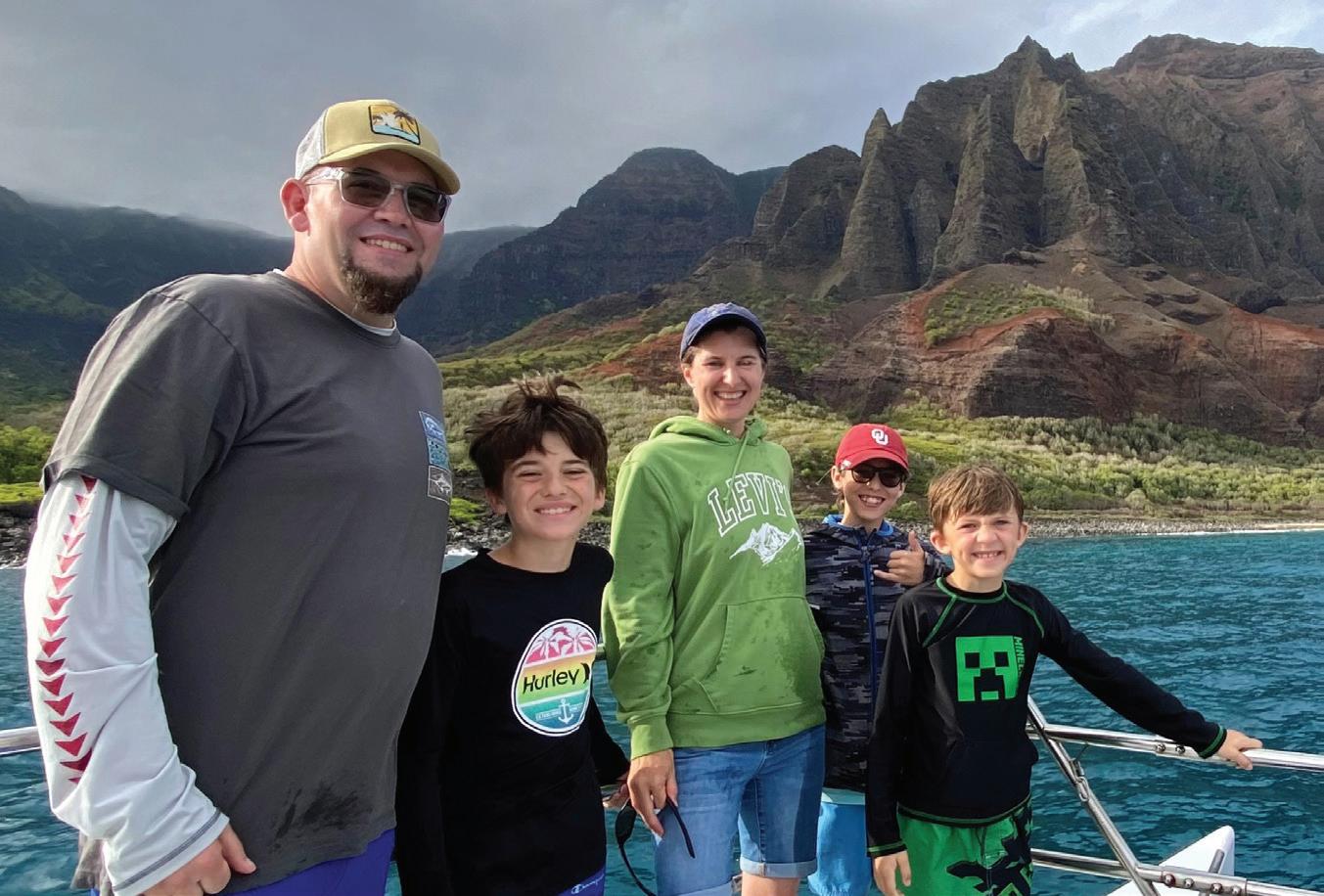
drudgery, I’m just looking at it as an opportunity to spend this time with my kids.”
“ It’s so powerful, impactful, for us to pray over our kids.


pray over our kids, especially God’s Word, and for them to hear us praying over them right now.

“When my kids were little and I could strap them in their seats and give them food, and while they were eating breakfast and making a huge mess of it, we would do a quick devotional. We would sing a song from their Sunday school class, and just do a real quick thank-you-Jesus-type prayer during that season. These days I spend about three hours in the car line getting my kids each day, so now we’re doing prayer time in the car. We’re listening to a podcast or audio Bibles. We’re having those conversations that are harder to have at home. So instead of looking at car time like

Busy parents are often strapped for time (not to mention the brain fog that comes with keeping all the logistics intact!). Tara knows this and recommends busy parents pick up a few resources to help them create spiritual time with their kids, like Jesus Calling or any other short devotional to create intentional prayer time. As for the Cole family, they’re looking to start the school year fresh and invigorated with their prayer routine intact.
“Right now, our family is just really praying over the school year. And again, this only takes, like, thirty seconds, but it’s so powerful, impactful, for us to


Adapted for print from the Jesus Calling Podcast. Scan this code to hear more of Tara’s story!




Check out Tara’s book Everyday Prayers for the School Year, available now.



by Michael Overholt
“GOD, HELP ME.”
A three-word prayer. That's all that Brad Minns could muster. He was in the 1985 Deaf World Championship tennis tournament and behind two sets: fi ve to zero, 40 to love. One more missed shot would be the end.
This wasn’t the fi rst time Minns had to battle back against the odds. At three years old he had a deadly high fever that left him without hearing. When it came time to attend school, his parents had to decide whether they were going to put him in a school for the deaf, or keep him in a regular school where he would work on a daily basis with a special needs teacher. They went with the latter.
Growing up, he faced fear every single day. Minns describes watching the digital clock on his nightstand every morning, waiting until his mother would come through the door, fl ip on the lights, and kiss him on the cheek. As much as he appreciated his mother’s tenderness, he dreaded the moment he had to wake up, because that meant he’d have to go to a place where he was the only one wearing hearing aids, the only one who had to see people’s lips moving to understand them, the only one who couldn’t understand the teachers explaining lessons at the blackboard with their backs to the class.
It’s tempting to think that Minns fought past his fear by falling in love with tennis, being naturally good at it, and winning every competition. That wasn’t the case. Minns did not immediately take to tennis. In fact, he was the worst one on the court. Weekend tournaments usually saw a quick exit in round one. But then something changed.
Minns tells of walking through a mall and seeing Arnold Schwarzenegger’s book The Education of a Bodybuilder. He wanted it, and his mother bought it for him, which is when Minns started lifting the weights his brother had in the basement and learned self-confi dence and goal setting.
With the combined strength of self-confi dence and goal setting, along with his parents’ examples of being disciplined, Minns started to improve his tennis game, eventually earning

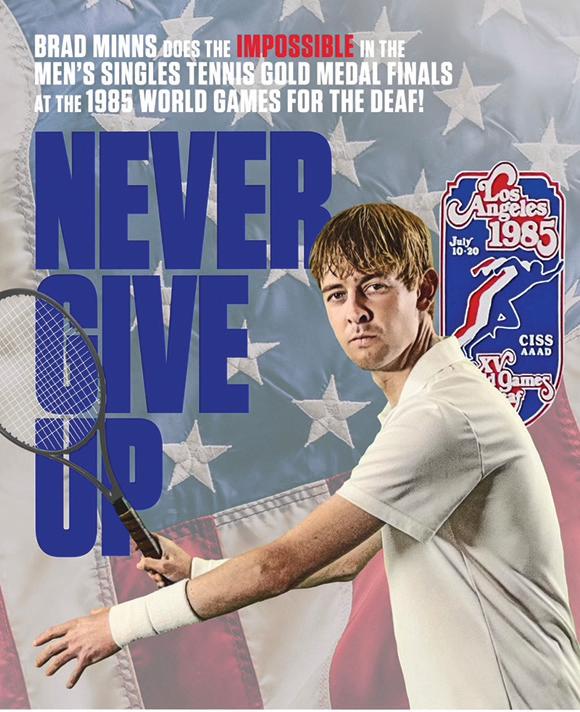


Poster for the movie based on Brad’s life, Never Give Up; Brad playing tennis today
a tennis scholarship to the University of Toledo. It was while he was in college that he was given a fl ier for the Deaf World Championships, made the team, and fi rst experienced “deaf culture.”
“When I made the team up there, they told me, ‘You have to take your hearing aids out,’” Brad remembers. “I’d never done that before, playing tennis. So I take my hearing aids out, and I’m like, Wow, it’s different. Your balance is aff ected, your timing is aff ected, hearing the ball come off the
string, it’s a diff erent situation. It’s complete silence.”
But like every other situation Brad faced in his life, he decided to work through the challenges. And still, he excelled. Which is how he found himself playing for the championship down two sets. Fighting against the odds was not altogether unfamiliar territory. It just meant that he was battling back in real time in front of everyone.
Keep. Going. He had seen this exemplifi ed in his parents his whole life. He had been practicing this his whole life. He simply needed to apply what he had been learning on the world stage in a single tennis serve.
Minns battled back to defeat the defending champion from Texas three sets to two.
When Minns looks back on his life, the lines between the spiritual and athletic are blurred. “What I’ve done is taken all those habits that I’ve learned from tennis and bodybuilding, and I applied them to my spiritual life,” the athlete says. His approach is nothing new; many people have found a correlation between athletic training and spiritual training. But what Minns off ers is a beautiful story of what “keep going” can look like in the life of a young man overcoming the complexities that a physical disability poses.

Adapted for print from the Jesus Calling Podcast. Scan this code to hear more of Brad’s story!

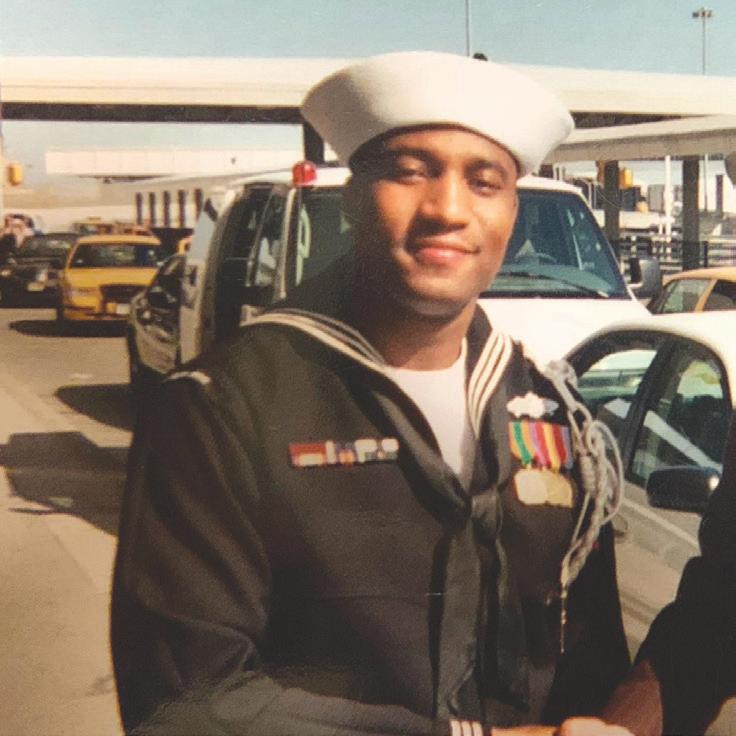


by Abigail Stephens
AS A CHILD, MICHAEL HYACINTHE immigrated to the US with his Haitian parents, who were intent to build a better life for their young family. Michael fondly remembers landing at JFK airport in New York, absolutely mesmerized. He wasn’t used to all the lights after experiencing poverty in Haiti.
Feeling blessed to be in America, and inspired by his parents’ legacy of hard work and faith, as a young man Michael knew he wanted to give back, which led him to join the military.
Fresh out of high school, Michael enlisted to become a US Navy Seabee, the engineers who create infrastructure all over the world so the various military branches can complete their missions. “I think the military developed me into the person that I am today,” Michael says. “I was determined
never to fail and never to give up.” While in service, Michael took part in several humanitarian missions, furthering his dreams of making an impact in the world after he fi nished his deployments.
Then, while Michael was back home in New York in September 2001, tragedy struck—and he was recalled into active duty with his reserve unit. But instead of deploying to combat, Michael became part of the Casualty Assistance Unit, who are responsible for notifying families their loved ones have been killed in action. This became a heartbreaking responsibility, as so many families in his new hometown of Grand Rapids, Michigan, had lost someone close to them.
With no other way to process his emotions, Michael found himself heavily leaning on God. “There are a lot of ups and downs in this journey
of life. But ultimately I know I’m doing God’s will and I need His strength. I know that I’m not alone, that the Creator is guiding me through good and bad.” Through those encounters, Michael’s heart for military families only grew. He was inspired to be a light in his local community through ArtPrize, an annual international art competition and cultural event.
“
I know that I’m not alone, that the Creator is guiding me through good and bad.
During ArtPrize, the town is bustling, and beautiful pieces of art—all shapes, sizes, and colors—are on display. Michael found himself holding both grief and joy during the event, thinking, How can I acknowledge these individuals’ deaths but still embrace that the city is lively with art? That people are united and celebrating the freedoms we've sacrificed for so that we can enjoy the freedoms of art?
That prompted him to reach out to an artist named Tyler Way, who created stunning artwork based on Michael’s ideas. The proceeds, in turn, benefi t veteran organizations. This acknowledgement of those who aff ord US citizens the freedom to be creative was the inspiration for Michael and Tyler’s organization, known as Has Heart.
At one event they attended together, Michael and Tyler met a marine who’d become a quadriplegic after being hit by a sniper’s bullet in Iraq. Although he was unable to speak, the veteran’s caretaker approached Michael and Tyler and said, “He was a big T-shirt collector. One of his dreams before he was injured was to create a design himself.” Inspired, Michael and Tyler decided to pivot the goal of Has Heart from creating their own designs to connecting injured veterans with designers to help them create their own pieces. “We’re now empowering veterans to be creative, express themselves, to hopefully heal and share their stories with community members. We’re using art as a bridge,” Michael says.
This new dream even led to an app called Wimage—words to images—that allows veterans to create independently. That opportunity for storytelling, design, and animation resonated with
all kinds of people—even preschoolers. The initiative has now blossomed into a PBS show called Wimee’s Words. Michael says, “It starts with allowing people to recognize the value of their imaginations. That's what Wimage is all about: putting a tool in their hand so that they can see their ideas and create the stories that they want to share with the world.”






1. Thank them for their service.
2. If you‘re a business owner, offer products and services at a discount.
3. Ask them if they‘re open to sharing their service story.

Adapted for print from the Jesus Calling Podcast. Scan this code to hear more of Michael’s story!


You can find the newest book in the Wimage series, Wimee Learns About Money, at your favorite retailer.



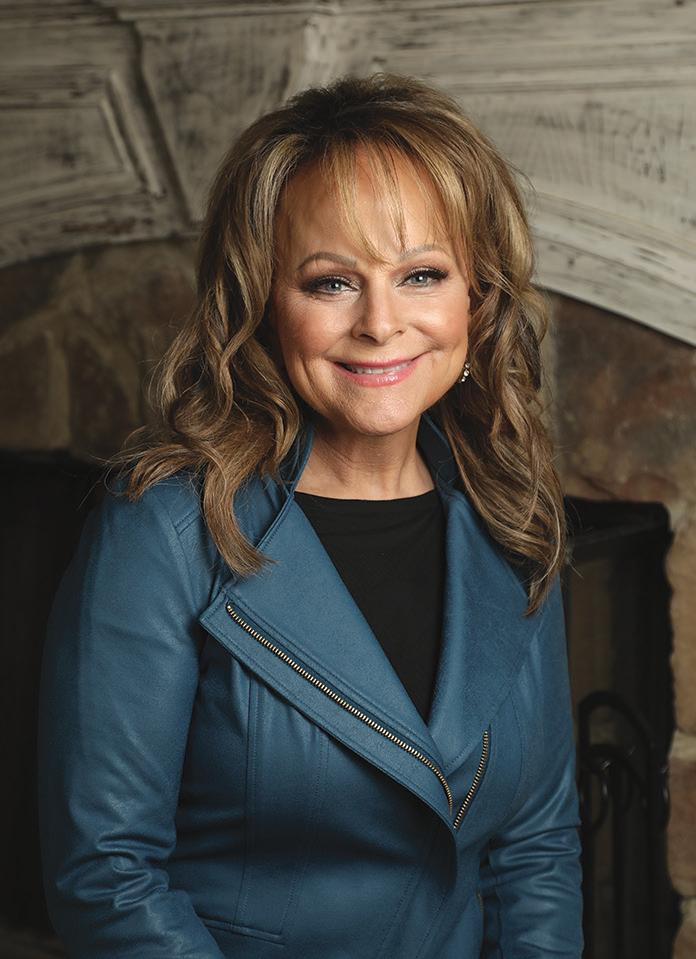
I’ve been guilty of looking at some people and thinking, I bet they’ve never had to deal with anything hard in their whole lives.
I know, right? That couldn’t be further from the truth! Every person we see has fought a hard battle. In fact, some people look so put-together on the outside, but on the inside they’re fi ghting something we can’t even see. For many, their battle is with anxiety.
Feels almost like a buzzword at this point, but what exactly is anxiety? The dictionary writers say things like “an apprehensive unease” or “a mentally distressing concern or interest.” Author and podcaster Rebekah Lyons knows that if you stay in that heightened sense of doom, like everything around you is about to crash, then you can never sink in to the peace God has waiting for you in His arms.
For years Rebekah battled feelings of anxiety and panic. She comes by it honestly. She’s got a lot on her plate: a thriving career, a loving marriage, being a mom to four kids. One of those kids made her an adoptive mom. And two of her kids live with Down syndrome.
Rebekah’s family is beautiful, so fi lled with love. But what you don’t see in the photos are countless hours of learning how to parent four children with four distinct personalities and sets of needs. It makes me think of the same question people ask women who seem to do the impossible: How does she do it?
Well . . . nobody said doing it was easy. Or peaceful. Lots of time, as Rebekah would tell you, it comes with panic, or sleepless nights, or having a hard time catching your breath. Why does this happen to us?
“I think anxiety comes against us, because as people of faith we're made to carry peace, since Christ is our Prince of peace,” Rebekah says. “And when you realize there’s a threat to that identity, you wonder, Is this who I am now? Is this what my life is going to look like? Those feelings may describe what you’re weathering, but they in no way dictate the destiny of your life.”

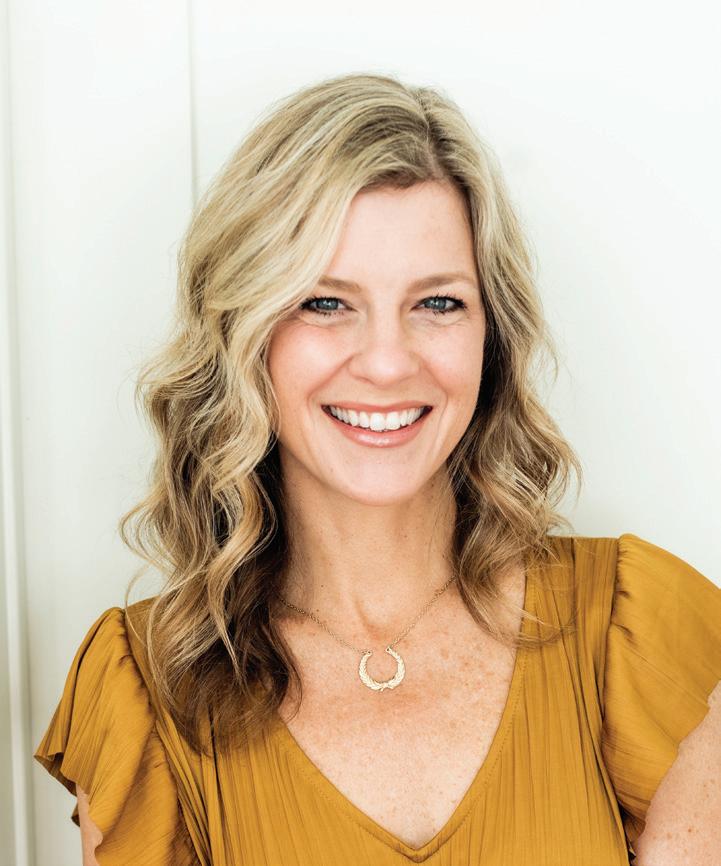
Rebekah Lyons
If you’re struggling with anxiety today, like so many of us are (you don’t see me, but my hand’s raised—even interviewers struggle sometimes!), Rebekah has some words of wisdom for us.
“You’re stronger than you think,” she says. “God made you for this. Say, ‘God, how are You going to use this situation for my good and Your glory?’ And I think when we can come around to mental health with the basis of faith, we’re only winning.”
_ Susie

Adapted for print from the Jesus Listens: Stories of Prayer YouTube series. Scan this code to watch Rebekah’s story!

by John Furr


WHILE CHRISTIAN RAP ARTIST KB is an artist, a husband, and a father of three, he identifi es primarily as a lover of Jesus. Through his music, he’s passionate about fi nding creative ways to help people better understand Jesus—especially after learning how, as the old adage says, “letting go and letting God” can save you spiritually and physically.
KB’s childhood was split between the southside of St. Petersburg, Florida, and Southern Illinois. In Illinois KB’s family lived on an Air Force base surrounded by security and safety. However, after his parents’ divorce, KB returned to St. Petersburg, where he faced markedly diff erent and insecure surroundings.



In high school, after feeling himself sliding down a dark path, KB’s life took an unexpected turn when he met a classmate named Jeremy, who made Christian rap music. “I wasn’t familiar with Jesus having a place in a young person's life, where they would basically determine what they’d do based on what Jesus cared about,” the artist remembers. “Jeremy was standing in front of me, doing that without qualifi cation, and I was struck by how unashamed he was.”
KB took home Jeremy’s CD and listened to the whole album. When he reached the fi nal track, which included a call to repent, KB surrendered his life to God. And so began a life-changing journey of faith.
grandfather‘s father was a slave, so he could not read. He had no education. But he was a hard worker. And with his hands, my grandfather built a multimilliondollar real estate empire,” the artist explains. “He bought churches. That’s the kind of man he was.” This work ethic carried into KB’s own life. As he racked up success in the music world, KB kept up a relentless pursuit of more, wanting the approval of those around him. But that relentless pursuit often resulted in stress-related health issues.

But, of course, the journey wasn’t without its challenges, particularly when it came to defi ning what success would look like in the coming years.
KB’s upbringing was marked by hard work, infl uenced by his grandfather’s legacy. “My
A pivotal moment came when a friend, Flame, pointed out the signifi cance of KB's accomplishments in building a 7,000-square-foot Christian hip-hop facility—but KB couldn’t feel the joy in it. He felt compelled to strive for even more. And that’s when KB realized his unhealthy desire for approval, particularly from his absent father, fueled his constant work. He began to let go of his constant striving, acknowledging his limitations and embracing his need for healing and guidance.
“I would say I’m more aware of the limitations of this life than I have ever been: the limitations of my own intellect, of my ability to control things. And it’s when we can appreciate how much we need a Savior that Jesus can do what He does in our lives: save us.”


For more information on KB, visit whoiskb.com


Adapted for print from the Jesus Calling Podcast. Scan this code to hear more of KB’s story!

How a traumatic brain injury reshaped the American Ninja Warrior’s life and her commitment to “Never Give Up”
by Michael Overholt

“THE FIRST TIME I watched the OKC fi nals run, it felt like I was watching someone else. It was one of the strangest feelings.” That’s what Maggi Thorne thought as she watched herself perform in the 11th season of American Ninja Warrior. She doesn’t remember most of it. In what was arguably one of her best runs ever, Thorne passed the Shrinking Steps, the Wing Swing, and the Flywheels before faceplanting on the Diving Boards. She was visibly shaken but somehow able to pass the next three major obstacles: the Coconut Climb, the Warped Wall, and the Salmon Ladder. Throughout her run, the announcers noticed she was visibly injured but living up to her motto: “Never give up.”
That motto was about to be put to the ultimate test over the next year. Mounting disorientation, physical numbness, and deteriorating eyesight would be just three of the symptoms in what doctors would diagnose as a mild traumatic brain injury (TBI).
For the greater part of the next year, Thorne found herself in therapy eight hours a week. She retired from American Ninja Warrior and all but gave up on the possibility of competing again. At one point, she admitted to her rehabilitation therapist that she felt she was having a mental breakdown.
But she never gave up.
To be clear, life had never been easy for Thorne. She had come from a low-income home, lived in a house that was shared with another family, and saw her brothers go in and out of jail. High
school track earned her a way to college, where she became the fi rst person in her family with a college education.
But persevering with a body rebelling against her mind? That was a whole new level of never giving up.
When she started having problems with her eyesight, she felt God say to her, “Now that you can’t see, I need you to let Me heal you.” And her motto began to take on new meaning. “Never give up” was no longer simply a mantra, but a principle to embody. “It’s about becoming ‘never give up,’” she says. A conversation with Maggi’s youngest daughter affi rmed this lesson.
“Mommy, are you going to compete on American Ninja Warrior again?”
Thorne answered, “Oh no, baby girl, I could get injured.”
To which her daughter replied, “And?”
The conversation resonated with Thorne for weeks.
“I believe God calls us to be uncomfortable. And that can be in conversation, in our community. Being able to step outside of our comfort zone, it doesn’t mean we necessarily have the sense of being fearless, but we have faith. And we’re learning how to unleash our faith.”
Thorne didn’t compete during Season 12 while she was rehabbing. When Season 13 came around, she got cleared by her doctors and began training. And even though she failed on the Domino Eff ect and didn’t move on to the semifi nals, she felt that was able to show her daughter and herself that “never give up” was more than a mantra.

One of Thorne’s favorite verses is Ephesians 2:10: “For we are God’s handiwork, created in Christ Jesus to do good works, which God prepared in advance for us to do” (NIV). To Thorne, those good works require courage, stepping out even when you don't know what’s ahead. She describes it as walking through fog and not feeling certain about what’s around you, but knowing that somebody is there with you. “Can we become what we say?” she asks.
For Maggi, the answer is yes. We can become what we say we are, even though the journey looks diff erent for everyone. Her journey saw her never giving up in childhood, getting through college, becoming an American Ninja Warrior in her mid-thirties with three kids, fi ghting through a mild TBI.
Perhaps there will be more because her journey is not over, but she can confi dently say that she’s becoming “never give up.”

To keep up with Maggi, follow her on social media.
Adapted for print from the Jesus Calling Podcast. Scan this code to hear more of Maggi’s story!
























ANN BYRN IS A FIFTH-GENERATION SOUTHERNER who’s spent most of her life writing for and about Southerners. A few years ago, as she began to compile recipes beloved by the region, she realized the legacy of Southern baking tells a rich story about the centuries of people who have called it home. “Our cornbreads, biscuits, rolls, puddings, pies, cakes, and cookies with unique names, flavors, and stories create a deeply textured mosaic,” she says.


In her upcoming book, Baking in the American South, Ann features recipes from fourteen Southern states. Some recipes, like Red Velvet Cake or Pecan Pie, are famous. Others, like Cantaloupe Cream Pie or Heavenly Chocolate-Tomato Cake, might be new to you. Every recipe is as diverse as its source—everywhere from churches and home kitchens to the White House itself.
This recipe for Sticky Lemon Cake was inspired by the memories of Janie Cheney’s family. Janie was born in Georgia in 1918, and as her grandson Kyle Tibbs Jones remembers, “My grandmother never showed up without a cake, because they served more people than pie.”

Here’s how to make a cake inspired by Janie’s delicious Sticky Lemon Cake!



Serves: 12–16
INGREDIENTS
Sticky Lemon Filling
1 (11 oz) jar lemon curd
Cake



1 box yellow cake mix (plus manufacturer’s suggested ingredients to bake cake)
Icing
2 cups heavy whipping cream
¼ cup powdered sugar
1 teaspoon vanilla extract
DIRECTIONS
Bake the Cake.
1. In three 9-inch cake pans, bake your favorite yellow cake according to recipe or package directions.
2. When cake is done, remove the pans from the oven and place on wire racks to cool for ten minutes. Run a knife around the edges of the pans, give the pans a gentle shake until the cake comes out. Let the cakes completely cool on the racks for thirty minutes.

1. Pour the cream into a large bowl, and beat with an electric mixer on high speed until it thickens, about one and a half minutes.
2. Stop the machine and add the powdered sugar and vanilla. Beat on high speed until stiff peaks form, one to two minutes more
Assemble the Cake.
1. Place one cake layer on a cake plate or platter, and spread half of the lemon curd (or desired amount) to within a half-inch of the edges. Top with a second layer and spread with the other half of the curd. Place the third layer on top. Place the cake in the fridge to chill for thirty minutes.

2. Remove the cake from the refrigerator and frost the top and sides. Slice and serve.

















Level Up the Cake!
Want to try your hand at a homemade sticky lemon filling and yellow cake?
Check out Ann’s full recipe for Sticky Lemon Cake in Baking in the American South!





RIDDLE: What has a shell but no sea, and you can hear it all summer with glee?
RIDDLE: What flies without wings on a hot summer day?
RIDDLE: What becomes shorter when the sun shines longer?
RIDDLE: I’m a letter of the alphabet and I’m the biggest thing on the planet. What am I?
RIDDLE: I scare a lot of people, but I’m not a spider. I have a fin, but I’m not a boat. What am I?
A sweet treat I want to make (or eat!): _________
A place I want to watch the sunset: ____________
The most fireflies I think I can catch (and release!) in one night: ________
A summer movie I want to watch: __________________
A cold drink I want to keep in the fridge: _____________
A place I want to go for a walk or a hike: _____________
A fireworks color you hope to see on July 4th: __________
Think of more things you’d enjoy during summer!
Activities, treats, people— there’s so much fun ahead!
The best road trip destination: _________________
The #1 item to take on a picnic: _______________
The #1 person to take on a picnic: ____________
A new ice cream flavor I want to try: _________
The perfect song for a Summer BBQ playlist:


